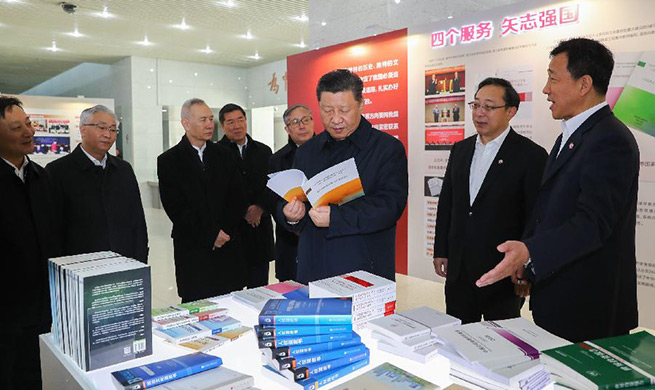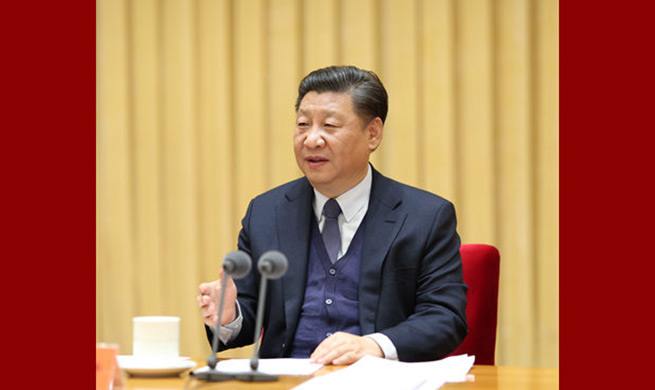LONDON, Jan. 17 (Xinhua) -- Players from England's elite Premier League are to take part in a ground-breaking academic study into concussion in football.
The University of Birmingham has teamed up with University Hospitals Birmingham (UHB) to review and potentially enhance concussion diagnosis in football.
The new study, supported by the Premier League Doctors Group, allows access to players during the current season. It involves saliva and urine samples being collected from injured Premier League players and uninjured "control" players by club doctors immediately post-match and at further points over the course of a player's recovery.
The samples are then tested in the laboratory at the University of Birmingham using a new test, called the "Birmingham Concussion Test", which has been developed following a decade of research led by academic neurosurgeon Professor Tony Belli.
The test looks for molecules in the blood, saliva or urine known as microRNAs, which can act as biomarkers to indicate whether the brain has suffered injury.
The latest project expands on research also being carried out by the University of Birmingham and UHB, which began in 2017 and is currently ongoing, testing the urine and saliva of concussed rugby players.
"Early and accurate diagnosis of concussion is one of the biggest challenges we face clinically and is particularly a major concern in the sporting world," Professor Belli said. "This exciting new study is an important addition to the breadth of research we are undertaking into concussion and player welfare in sport more broadly."
"This research has the potential to benefit professional, grassroots and youth level footballers alike, making the process for diagnosing concussion as effective as possible," added Dr Patrick O'Halloran, Sports Concussion Research Fellow at the University of Birmingham, who is also the academy doctor at Wolverhampton Wanderers FC. "Similarly, this may be valuable in other sports or for patients in NHS Accident and Emergency departments."
"In the future, it is hoped that the Birmingham Concussion Test could be used pitch side and would have the potential to assist in return-to-play decisions or concussion diagnosis across sports, from grassroots to professional, in addition to military and other frontline settings," added a University of Birmingham spokesperson.



















